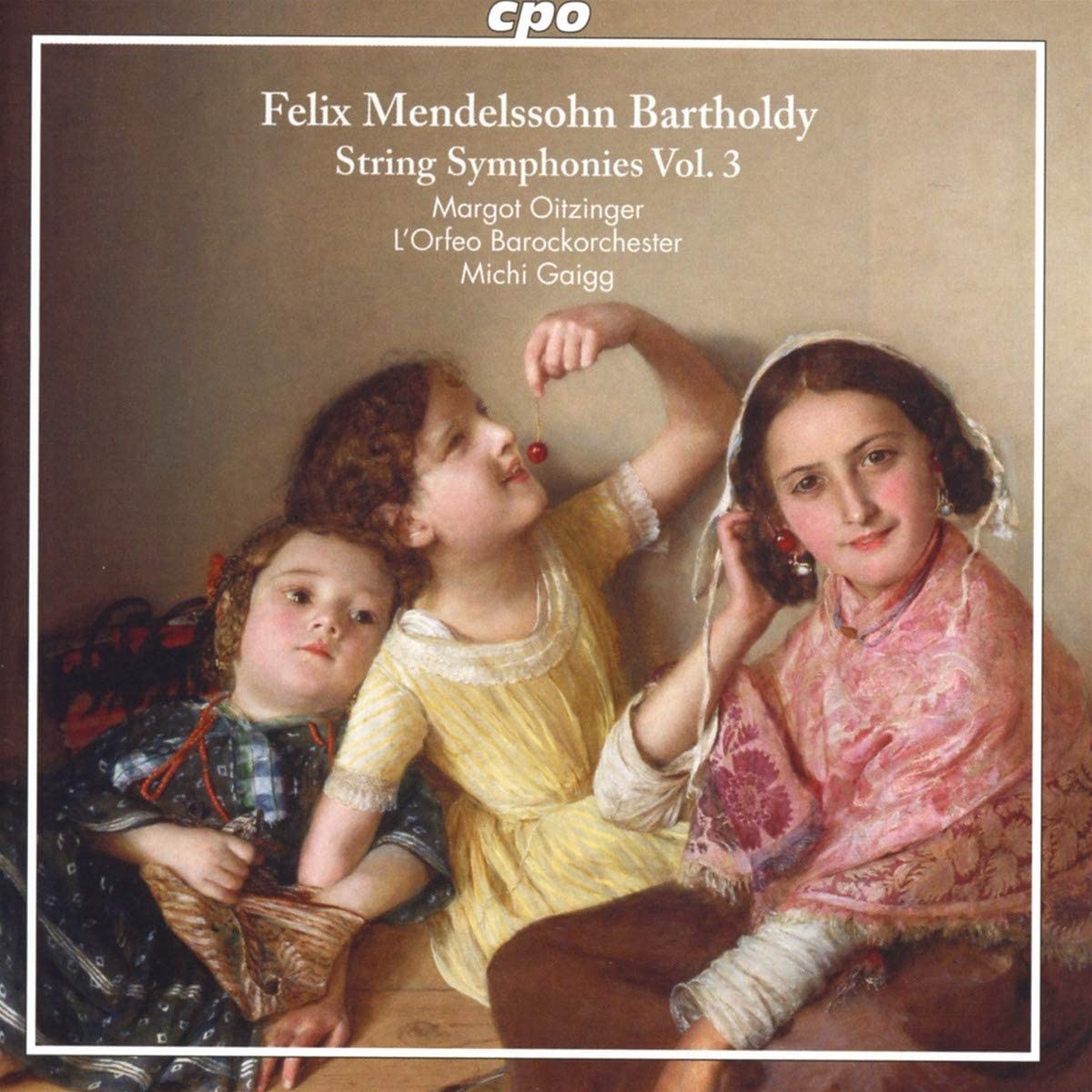Margot Oitzinger, L’Orfeo Barockorchester, Michi Gaigg
68:58
cpo 555 202-2
Click HERE to buy this CD on amazon.co.uk
For many years Mendelssohn’s ‘string symphonies’ were dismissed as juvenilia, but in the case of a prodigious genius like Mendelssohn one should be wary of dismissing anything on the grounds of youth. Once they were more frequently performed and recorded, it became apparent that these are as remarkable as much of the composer’s other youthful projects. In these sizzling period instrument recordings the Orfeo Baroque Orchestra take this process of rehabilitation a stage further, bringing out the subtleties of works which turn out to be much richer and more dynamic than hitherto suspected. Bearing in mind the domestic context of their original performance, they use reduced forces (particularly at the lower end) allowing the light to fall on the highly innovative textures the young composer conjures up – take for example the opening section of the slow movement of the 8th symphony where a solo ensemble of violas and cello gives the music the texture of a lugubrious Romantic concerto grosso. Relying on accounts of the initial performances as well as common sense, these versions include a fortepiano playing a sort of continuo. This is highly plausible and in practice utterly convincing. This third volume in what looks like a projected complete account of the string symphonies presents the 8th and 9th symphonies, and as a delightful bonus the substantial Scene for alto and string orchestra ‘Ce vuoi mio cor’ MNV H1, sung expressively and dramatically by Margot Oitzinger. As fascinating as the demanding vocal part are the textures of the string accompaniment. It is exciting to see this music, composed for family matinee concerts chez Mendelssohn around 1825, being taken a little more seriously, and being given thoughtful and technically polished period instrument performances. As they branch out so successfully into the music of the 19th century, is this a group trapped slightly in its over-specific name?
D. James Ross
